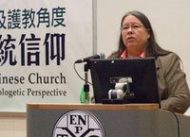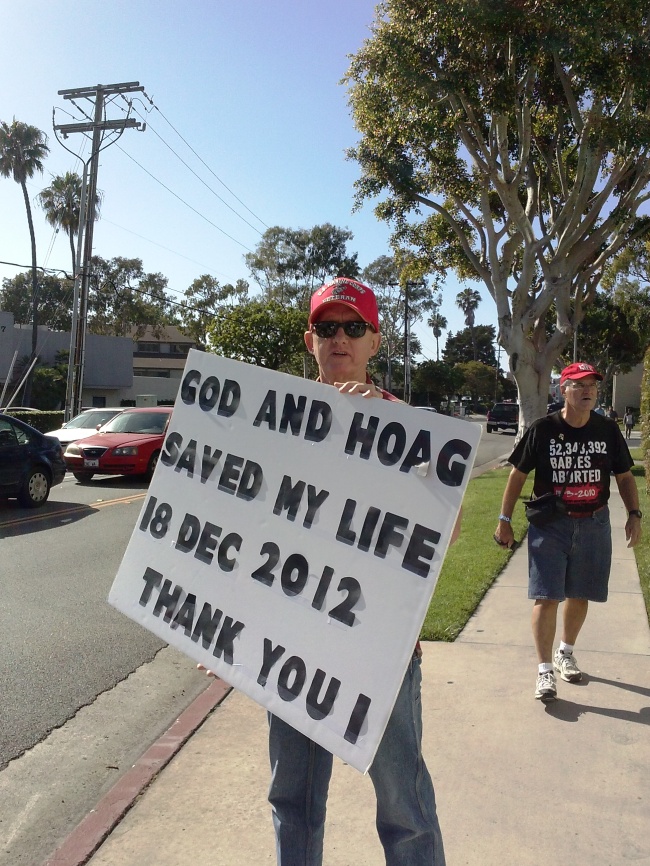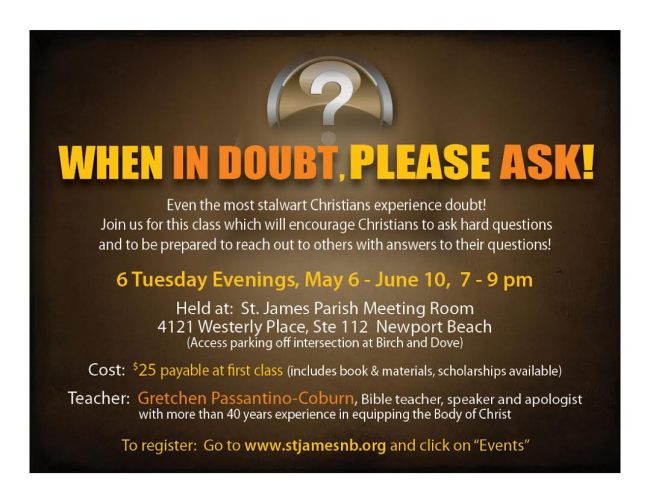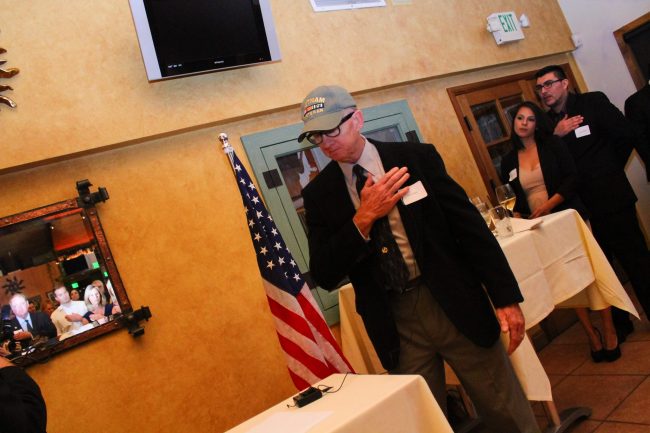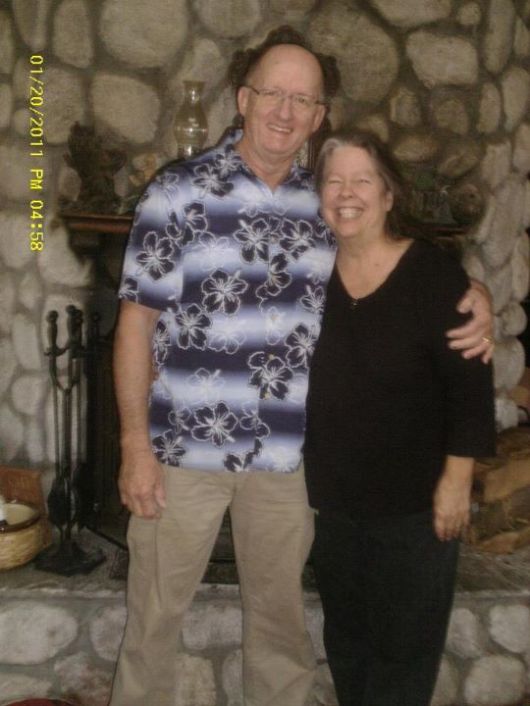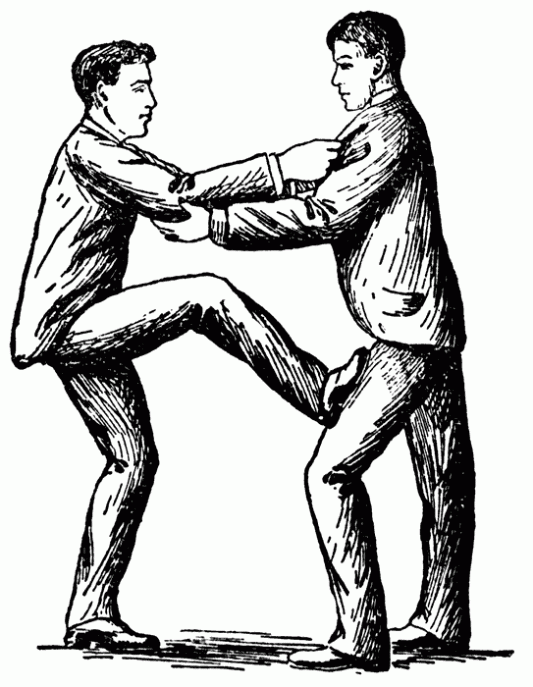
© Copyright 2003 by Gretchen Passantino1
I love stories. I become lost in other people’s worlds. I devour good fiction voraciously, returning to the same wonderful story again and again, marveling each time at the tantalizing power of human creativity. Truly wonderful characters become almost as real to me as people in the “real” world. A gripping suspense story starts my heart pounding, my palms sweating, and my nerves ready to jump at any sound. If I must put down a half-finished intriguing mystery, I find my thoughts straying from my work to the puzzle, looking at it from one angle and then another, bringing my mental tools to bear to solve the mystery when I should be meeting deadlines. Some of the most profound personal and spiritual insights I’ve ever experienced have grabbed me from the pages of a story. In exquisite story telling I see the creatorial image of God reflected in authors who create worlds of ideas never pondered before. As a spiritual novice and a moral ingénue I encountered and came to understand faithfulness, integrity, courage, humility, and self-discipline through good characters; and betrayal, deceit, cowardice, pride, and self-indulgence through evil ones. I can’t count how often God has sneaked up on me in a powerful story, and taught me lessons I wouldn’t have willingly learned had he been so obvious as to challenge my stubbornness directly through a Bible study. My actual conversion to Christ came through a fairly ordinary encounter with the straightforward gospel, but the Holy Spirit softened me beforehand through literature, and nurtures me long after through the same manner.
I’ve used outstanding stories to share some of my most important beliefs with non-Christians who would never listen to an overt preaching of the gospel, but who can be enticed by a good story into thinking for the first time about life after death, justice, morality, and redemption. Mainstream, popular contemporary fiction — if it’s good — is a valuable tool of pre-evangelism, seed-planting, “soft” apologetics.
One of the best pro-life books I’ve ever read is Horton Hears a Who by Dr. Seuss.2 Remember the story from your childhood? Horton the elephant finds a speck of dust on which is a village of little persons, the Whos of Whoville. Horton realizes he must rescue the Whos “Because, after all, a person’s a person, no matter how small.” The rest of the animals scoff and refuse to believe persons could be so small. But Horton can’t give up. He recognizes the moral responsibility he has, “I’ve got to protect them. I’m bigger than they.” When the black-bottomed bird flies off with Whoville, Horton chases after him, crying, “Please don’t harm all my little folks, who have as much right to live as us bigger folks do!” In desperation, Horton urges all the little Whos to shout as loud as they can so the other animals can finally hear them and realize they exist. No one hears anything until finally the last little Who joins in with a “Yopp!”
Finally, at last! From that speck on that clover
Their voices were heard! They rang out clear and clean.
And the elephant smiled. “Do you see what I mean? . . .
They’ve proved they ARE persons, no matter how small.
And their whole world was saved by the Smallest of All!”
Now, I don’t mean to imply that Dr. Seuss was a pro-life Christian, or that he intended this children’s story as a pro-life statement. Nevertheless, Horton Hears a Who reflects how truth can be recognized even by unbelievers, as Paul stated in Romans 2:15, “the requirements of the law are written on their hearts, their consciences also bearing witness. . . . ”
Christian author John Fischer describes the importance of using the story to communicate the absolute truth, in today’s society of relativism, where “absolute truth” is rejected in favor of what he calls “truth anarchy”:
What happens to the Christian apologetic in such a world? How do we explain what we know as absolute truth to a generation that cannot even think in terms of such a thing? . . . .
Story. Narrative, novel, film, music, art, but tell a story. As in the parables of Jesus, we intrigue the modern mind through story and entice them to start thinking differently. Through story, one can encounter a world where absolutes are true even if one does not believe such a world presently exists, and in the process, the soul can unconsciously hunger for what it knows to be the truth but is culturally and intellectually being denied.3
We don’t need to spell out the entire gospel message in block letters to provoke some serious soul-searching. A local Southern California mystery novelist and newspaper columnist, T. Jefferson Parker, recognizes the power of a good story, “I like a sense of danger and a sense that in the book that I’m writing, life and death are the issues as opposed to financial solvency or cocaine problems. I want large things to be at stake.”4 In one of his columns, he focused on the meaning of life in only a few words of contemplation. He recounted the true story of a local teenager who was convicted of killing his friend over a robbery dispute. The convicted murderer, Robert Chan, “wrote in letters to the court that he had read Albert Camus’ The Stranger some nine months before the murder and claimed that the book encouraged him to kill his victim because ‘everything [is] meaningless and nothing matters because we are all going to die.'” Parker notes that he read the same book some twenty years earlier when he was a teenager, but responded differently:
Rereading Chan’s words . . . I was struck by how close he was to the mark, and at the same time how far away. Because we are all going to die, he reasons, everything is meaningless and nothing matters.
But the truth is: Because we are all going to die, nothing is meaningless and everything matters.5
A carefully crafted, compelling protagonist in an outstanding story provides not only a creativity reflective of the one true Creator, but also a prototype of a person redeemed to the creatorial position for which God originally intended us. In an imaginary conversation between mystery writer Dorothy Sayer and the protagonist of her classic Peter Wimsey stories, these two themes are echoed,
“Perhaps you’re right in a way. Perhaps I did create in you the man I couldn’t find in this life. But it was not for some subliminal and sordid satisfaction. It was to show the world the type of man required for the satisfaction of a modern, unfettered, educated woman. The awful, unattainable goal to be achieved.”
“And yet, if I may be allowed one more immodest observation, you achieved it,” Wimsey said softly.
“In art, Peter.”
“It is no less of an achievement for that. It is no common soul that can shape the world to its own ideals, no matter that the world it masters is a fiction. And no common reward awaits the creators of this life. However modest their creations, each echoes the larger work.
‘The glory of Him who moves all things soe’er
Impenetrates the universe, and bright
The splendour burns, more here and lesser there.'”6
Mysteries and horror stories lend themselves particularly well to sowing the seeds that make us vulnerable to the gospel. In a way, the good mystery or horror parallels the story of redemption: Everything is right in the world until evil intrudes and spoils what it finds. After searching, recognizing clues, and chasing suspects, redemption comes as good triumphs over evil and the world of the story is restored by justice. Jewish mystery writer Majer Krich recognizes this parallel, “Judaism in general deals with good versus evil in the Biblical sense. . . . [M]ysteries deal with good versus evil. Period.”7 Horror author William Relling (Brujo) agrees, “The essence of horror stories’ ‘scary stuff’ lies in a struggle between good and evil. I believe that, in fiction, good has to win. Otherwise we’re in trouble.”8
The best contemporary fiction can promote godly morality with subtle persuasion rather than brash revivalist preaching. Jewish mystery writer Faye Kellerman’s stories feature an orthodox Jewish couple, Peter Decker and Rina Lazarus, whose deep faith seems a natural part of the story. In Sanctuary, on the trail of diamond thief murderers, Rina visits the “Cave of the Pairs” in Hebron, the traditional site of the burial of Abraham and Sarah, Isaac and Rebecca, Jacob and Leah, Adam and Eve:
It smelled like a compost pile of rich, decaying vegetation, as if the shrine echoed God’s very words — for dust thou art and unto dust thou shall return. . . . These people weren’t fairy-tale characters or mythological creatures, they were real people. And like all real people, they had lived, and they had died.9
The Jewish sholdier guarding the site later explains how he knows Rina is not an Arab terrorist in disguise:
“I see with my own eyes that you’re a good woman. Because I followed you in the Ma’arat. I saw the tears in your eyes when you prayed, the expression on your face when you davened shemona esreh. I saw you mouth the words with clarity, with assurance, with purpose and meaning. Your posture, your sincerity. It shows through as if you have a window to your heart. You pray to a God of mercy, not to a God of revenge. Many pray here — Arab and Jew. I don’t think you’re a crazy fanatic. And I don’t think you are an Arab spy, either. Many try to pretend to be us to infiltrate. They speak our language, eat kosher food, drink our wine, and love our women. But they cannot love our God.10
Novelist Elizabeth George, without intruding sermonizing, but within the natural rhythm of the story, explains the forgiveness of God in the words of a parish priest consoling young Maggie Spence:
“If the Lord’s last words were, ‘Forgive them, Father,’ and if His Father did indeed forgive — which we may be assured he did — then why wouldn’t He forgive you as well? Whatever your sin may be, my dear, it cannot equal the evil of putting to death the Son of God, can it?”11
Verteran mystery writer Dick Francis doesn’t preach celibacy in Driving Force, but his protagonist understands its sad consequences: a young daughter, the unintended product of a physically enjoyable but uncommitted relationship, growing up with no knowledge of him as her father; and a recognition that sex is a poor substitute for being loved:
The older I grew, the more I saw consequences in advance and the more I cared . . . about not doing damage for the sake of a passing pleasure. I looked back over the years with horror, sometimes. After I’d lost Susan Palmerstone I’d drifted in and out of several relationships without understanding that I might have awoken much deeper feelings than I felt myself; and I’d dodged a thrown plate or two and laughed about it. How dreadfully long it had taken me to stop grazing.12
One of Francis’ most poignant stories is of a security consultant, whose loneliness is drawing him seemingly inexorably toward suicide. Gene Hawkins has no significant reason to live, and it takes all of his fortitude to resist ending his life: “The day-to-day social level had lost all meaning and underneath, where there should have been rock, had opened a void of shriveling loneliness.”13 The despair plagues him throughout his search for stolen race horses in company with an insurance agent who seems to possess all the meaningfulness, love, and family security Gene so desperately lacks. The temptation to end it all pierces the prose with an authenticity that speaks to the heart of anyone who has been close to self-inflicted death:
I shut my eyes, and the desolation went so deep that for an unmeasurable age, I felt dizzy with it, as if I were in some fearful pitch-black limbo, with no help, no hope, and no escape. Spinning slowly down an endless shaft in solitary despair. Lost.
The spinning stopped after a while. The internal darkness stayed.14
In the end, the contented insurance agent, Walt Prensela, saves Gene’s life by throwing himself in front of the suspect’s speeding car, and Gene rails at the unfairness:
It should have been me lying there, not Walt. I shook with sudden impotent fury that it wasn’t me, that Walt had taken what I’d wanted, stolen my death . . . . It would have mattered so little if it had been me. It wouldn’t have mattered at all.15
But finally Gene understands Walt’s sacrifice and turns away from suicide forever:
The gray day turned to gray dusk. I got up and switched on the light, and fetched two objects to put on the low table beside my chair.
The Luger, and the photograph of Walt with his wife and kids.
The trouble with being given a gift you don’t really want is that you feel so mean if you throw it way. Especially if it cost more than the giver could afford.
I won’t throw away Walt’s gift. . . . . I’ll survive.16
Not the gospel, in so many words, but a striking parallel to Jesus’ “greater love has no one than this, that one lay down his life for his friends” (John 15:13).
One of the most gripping suspense stories I’ve ever read is also one of the most spiritually and emotionally wrenching. T. Jefferson Parker’s Summer of Fear twists together two story lines to illustrate his theme of the triumph of good over random evil: a crime journalist, Russ Monroe, follows the unfolding story of a sociopathic serial killer slashing his way through a Southern California summer as the journalist anguishes over the invading, destructive brain cancer that threatens his wife, Isabella. It is also a story of exquisite soul-searching, a story where what ultimately matters is at stake.
Early in the story Russ recognizes the effect of the Fall on nature, “the way that nature can go so quickly from order to chaos. The popular notion is that nature’s world is ultimately ordered and systematic, that only man’s woeful intrusions can ruin that balance and harmony. This is not true. . . . the natural world isn’t neatly ordered, isn’t flawless, isn’t perfect. Sometimes it is just like our human one: angry and yearning for mayhem.17
Monroe’s ambivalent faith in the face of his wife’s suffering rings true to anyone who has anguished over the suffering of a loved one:
God, help me love her more. God, do something good for her or I’ll cut your heart out with a chain saw and feed it to Black Death. . . .
Have you ever known helplessness while someone you love is suffering? Have you ever cursed God for what He has done? Have you ever felt your heart throbbing with so much love and rage that they get mixed up and you can’t tell one from the other?18
He comes to a crisis where he truly experiences for the first time that he is not invincible, that he can’t make everything right, that he is, in fact, powerless:
If fear of the Lord is the beginning of knowledge, what is the beginning of fear? I have an answer, for myself at least. The beginning of fear is to understand that you are without power. I took me half a lifetime — 40 years — to realize this. Oh, I can hear the protestant brayings of those who are “taking responsibility for their own lives,” or “are God,” but I’m not talking about the mundanities of happiness, success, self-fulfillment, weight loss, life without alcohol, or who is okay and who is not. I’m talking about powerlessness in the face of death, in the face of life, in the face of madness, love, disease, desire, in the face of all things beautiful and terrible that govern our every moment whether we know it or not. And I am talking about the fear of truly realizing that your best may not be good enough, that it may, in fact, be very little good at all. To understand this is to become fluent in the language of terror, to become intimate with the contours of the pit. It is the wisdom of the man before the firing squad. But fear — true fear — is not a reason for anyone to do something so simpleminded as to surrender. No. The acts of the powerless are among the lasting nobilities of the race. To advance with a stomach knotted in terror is more than courage. Fear is beauty.19
From this courage in the midst of powerlessness, Russ longs for a new beginning, “[Did] you ever wish something big, like God, would pick you up by the heels with a pair of tongs and just like dip you into something wet, and when you came out, you’d be clean and fresh again?”20
Finally, he comes to terms with the fear, the anguish, the terror, and God, praying before his wife’s brain surgery:
Dear Father in heaven, I am small, corrupt, hateful, meanspirited and too much a coward to sin importantly. I am a fool. Hear my prayer. I know how you value humility, so I confess to all this to assure you I know my place in your order of things. I deserve nothing. I expect nothing. I will ask for nothing. But you are absent here, you ceded this earth to us, and there are some things you should know. We suffer. We cry. We toil. Sickness comes to us. Death moves among us with arrogance. We die, trembling, bound for unspecified destinations. Christ died for our sins once; we die for them again. His agony is over, but ours continues. Our anguish is real. Do you remember how it feels? I know that your design is huge, so I have stopped trying to understand it. In your larger hands, we leave the larger motions. My concern is this life you have given us. I am too stupid to believe it is only a prelude. I am too weak to be happy that there may be a reward at the end of it. I am too literal to believe that the heart of the matter lies elsewhere. This is the heart of this matter. Do not think less of me for holding dear the life you’ve given. I lied when I said I would ask for nothing. This is what I want: I want you to treat Isabella with respect. I want you to give me the love that I want so badly to have for Isabella in these coming days. Give it to me so I can give it to her. I ask to be your representative. Do not leave us without love. Respectfully submitted to you in this hour of need, Amen.21
***
Start reading good fiction. You’ll discover spiritual lessons you never would have expected outside the pages of scripture.
Since I wrote the above, I have explored hundreds – probably thousands – of imaginary worlds with novelists, the best transforming me into a better me when I close the book, the worst propelling the never-finished story against my bedroom wall to lie forgotten and broken on the floor. I edited these words as I prepared to give a talk about a popular fiction book that claims to tell the truth about Jesus and the Bible, but which does not. Not only does the book denigrate our Lord, in its poor fiction it denigrates the beautiful power that flows inexorably through good fiction and into a tender heart that longs to be transformed – even a little bit at a time – into the heart of our Creator and Sustainer. Frankly, I didn’t want to spend another talk or interview focusing on the inadequate. I wanted to focus on what raises our hearts from our own inadequacies to Christ’s overflowing adequacy through the transformation of meaningful stories.
Let God work subtly in your heart through stories. Check the authors I’ve quoted above and below. Keep searching until you find God in the middle of a story. You will find a new way of – to paraphrase C. S. Lewis – “getting God inside you so He doesn’t merely improve you, but transforms you.”
Remember, I am not saying these authors are Christians, or that the books I’m recommending are Christian books with clear gospel messages. But they are authors who – however brokenly – are reflecting the Divine image; and whose books will leave you a better person – and better Christian – than you were before. One of my favorite characters, flaws and all, is Harry Bosch, created by author Michael Connelly. Bosch has devoted his life to homicide investigation. It’s not his career. It’s not his job. It’s not what he’s good at. It’s not what he likes. (Although it’s all those things, too.) He does it because it’s his mission – his calling, the only thing that fulfills him. And he lives by the creed that unless everyone matters, no one matters. Isn’t this an echo of Christ, who told of the shepherd who searched for the one lost lamb; and who said concerning his death, burial, and resurrection, “for this purpose I was born”? Look for books and authors whose mission is ensuring that everyone matters – that’s God’s message of redemptive love.
Other Recommended Authors:
Andrew Vachss – his mission is to protect children from evil. He says, “I don’t claim to do what I do because I love children. I do what I do because I hate people that prey on them.” In another place he says, “Sickness is a condition. Evil is a behavior. Evil is always a matter of choice. Evil is not thought; it is conduct. And that conduct is always volitional. And just as evil is always a choice, sickness is always the absence of choice. Sickness happens. Evil is inflicted.”
Michael Connelly – whether it’s his Harry Bosch series or his stand-alone stories, Connelly is always about redeeming the lost from evil into beauty and life. In Blood Work,22 the main character, an FBI profiler retired to receive and recover from a heart transplant, must solve the murder of Glory for her sister Graciella – it is Glory’s heart beating in McCaleb’s chest. Is there a better analogy of the atonement? In a short story Harry is interviewing an inmate on death row, pleading with him to give him the identity of his last victim, a young girl never identified and thus never buried by her family. The killer says nobody cares. Harry says he cares. The killer refuses to tell. Harry tells the killer, “You’re going to burn. You are going to burn in hell.” The killer responds, “Don’t you know, Detective? You have to believe in heaven to believe in hell.” The problem of evil and the problem of good, all laid out in a few short lines of dialog.
Elizabeth George – British mysteries crafted with complexity and richness of character but, in my book, most powerful because her characters change and grow through difficulty and pain. In Well-schooled in Murder one main character, Deborah, having miscarried several times as she and her husband try to build their family, struggles with guilt over the abortion she had years before: “As they gazed across the expanse of their bed, Deborah took the full measure of how completely her past was obliterating whatever future was possible with her husband.” If only a young woman with an “unplanned pregnancy” could see the future Deborah experiences here!
And then there’s Dick Francis’s Proof, of inestimable value for someone struggling through the loss of a beloved spouse; or his Decider, one of the best arguments for free will I’ve ever seen demonstrated in story form.
And for middle school children, The Roman Mysteries by Caroline Lawrence, a series by an archaeologist filled with great first century Roman history, artifacts, customs, and life – and, more importantly, experiences with forgiveness and God.
Other authors I credit for some of my spiritual transformation include James Lee Burke, Donald Harstad (a great, subtle wit, too), William Bernhardt, Robert Crais, Deborah Crombie, Ian Rankin, Val MacDermid, Minette Walters, Bryce Courtenay (The Power of One), Peter Robinson, Archer Mayor, Bartholomew Gill, Ridley Pierson, and Michael McGarrity.
There are many more – enrich yourself with some and grow pleasurably in your leisure reading!
 We need $20,000 within the next 2 weeks to save our home from forced foreclosure sale & reinstate mortgages & update property taxes. We need $20,000 over the year to meet our expenses until our Answers In Action has new non-profit status, my early retirement SS begins, & Pat’s hardship VA benefit kicks in. God has called us to ministry focus, me with 40 years of full-time Christian ministry in apologetics & discipleship, Pat with his trauma, combat, & critical medical crisis experience sharing the grace & sufficiency of Christ with others in crisis & trauma. Please pray about helping us to stay in our home & serve the Lord.
We need $20,000 within the next 2 weeks to save our home from forced foreclosure sale & reinstate mortgages & update property taxes. We need $20,000 over the year to meet our expenses until our Answers In Action has new non-profit status, my early retirement SS begins, & Pat’s hardship VA benefit kicks in. God has called us to ministry focus, me with 40 years of full-time Christian ministry in apologetics & discipleship, Pat with his trauma, combat, & critical medical crisis experience sharing the grace & sufficiency of Christ with others in crisis & trauma. Please pray about helping us to stay in our home & serve the Lord.
 We need $20,000 within the next 2 weeks to save our home from forced foreclosure sale & reinstate mortgages & update property taxes. We need $20,000 over the year to meet our expenses until our Answers In Action has new non-profit status, my early retirement SS begins, & Pat’s hardship VA benefit kicks in. God has called us to ministry focus, me with 40 years of full-time Christian ministry in apologetics & discipleship, Pat with his trauma, combat, & critical medical crisis experience sharing the grace & sufficiency of Christ with others in crisis & trauma. Please pray about helping us to stay in our home & serve the Lord.
We need $20,000 within the next 2 weeks to save our home from forced foreclosure sale & reinstate mortgages & update property taxes. We need $20,000 over the year to meet our expenses until our Answers In Action has new non-profit status, my early retirement SS begins, & Pat’s hardship VA benefit kicks in. God has called us to ministry focus, me with 40 years of full-time Christian ministry in apologetics & discipleship, Pat with his trauma, combat, & critical medical crisis experience sharing the grace & sufficiency of Christ with others in crisis & trauma. Please pray about helping us to stay in our home & serve the Lord.
